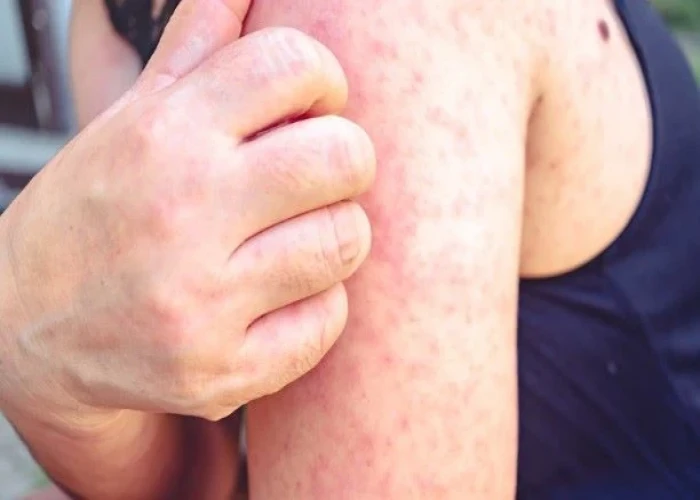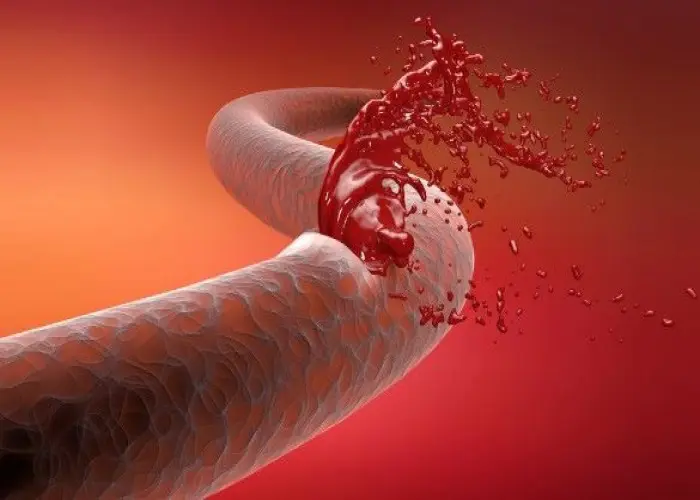 Welcome
Welcome
“May all be happy, may all be healed, may all be at peace and may no one ever suffer."
Vaginitis

Vaginitis is an inflammation of the vagina that can result in discharge, itching, and pain. The cause is usually a change in the balance of vaginal bacteria or an infection. Reduced estrogen levels after menopause and some skin disorders also can cause vaginitis.
The most common types of vaginitis are:
- Bacterial vaginosis. This results from an overgrowth of the bacteria naturally found in your vagina, which upsets the natural balance.
- Yeast infections. These are usually caused by a naturally occurring fungus called Candida albicans.
- Trichomoniasis. This is caused by a parasite and is often sexually transmitted.
Treatment depends on the type of vaginitis you have.
Research Papers
Disease Signs and Symptoms
- Foul menstruation or vaginal discharge
- Vaginal itching
- Vaginal pain or burning
- Painful sexual intercourse (dyspareunia)
- Burning during urination
- Vaginal bleeding
- Change in color, odor or amount of discharge from the vagina
Disease Causes
Vaginitis
The cause depends on what type of vaginitis you have:
- Bacterial vaginosis. This most common type of vaginitis results from a change of the bacteria found in your vagina, upsetting the balance. What causes the imbalance is unknown. It's possible to have bacterial vaginosis without symptoms.
- This type of vaginitis seems to be linked to but not caused by sex — especially if you have multiple sex partners or a new sex partner — but it also occurs in women who aren't sexually active.
- Yeast infections. These occur when there's an overgrowth of a fungal organism — usually Candida albicans — in your vagina. C. albicans also causes infections in other moist areas of your body, such as in your mouth (thrush), skin folds and nail beds. The fungus can also cause diaper rash.
- Trichomoniasis. This common sexually transmitted infection is caused by a microscopic, one-celled parasite called Trichomonas vaginalis. This organism spreads during sex with someone who has the infection.
- In men, the organism usually infects the urinary tract, but often it causes no symptoms. In women, trichomoniasis typically infects the vagina, and might cause symptoms. It also increases women's risk of getting other sexually transmitted infections.
- Noninfectious vaginitis. Vaginal sprays, douches, perfumed soaps, scented detergents and spermicidal products can cause an allergic reaction or irritate vulvar and vaginal tissues. Foreign objects, such as toilet paper or forgotten tampons, in the vagina also can irritate vaginal tissues.
- Genitourinary syndrome of menopause (vaginal atrophy). Reduced estrogen levels after menopause or surgical removal of your ovaries can cause the vaginal lining to thin, sometimes resulting in vaginal irritation, burning and dryness.
Disease Prevents
Vaginitis
Good hygiene might prevent some types of vaginitis from recurring and relieve some symptoms:
- Avoid baths, hot tubs and whirlpool spas.
- Avoid irritants. These include scented tampons, pads, douches and scented soaps. Rinse soap from your outer genital area after a shower and dry the area well to prevent irritation. Don't use harsh soaps, such as those with deodorant or antibacterial action, or bubble bath.
- Wipe from front to back after using the toilet. Doing so avoids spreading fecal bacteria to your vagina.
Other things that might help prevent vaginitis include:
- Avoid douching. Your vagina doesn't require cleansing other than regular showering. Repetitive douching disrupts the good organisms that live in the vagina and can increase your risk of vaginal infection. Douching won't clear up a vaginal infection.
- Practice safer sex. Using a condom and limiting the number of sex partners can help.
- Wear cotton underwear. Also wear pantyhose with a cotton crotch. Consider not wearing underwear to bed. Yeast thrives in moist environments.
Disease Treatments
A variety of organisms and conditions can cause vaginitis, so treatment targets the specific cause:
- Bacterial vaginosis. For this type of vaginitis, your health care provider might prescribe metronidazole tablets (Flagyl) that you take by mouth or metronidazole gel (MetroGel) that you apply to the affected area. Other treatments include clindamycin (Cleocin) cream that you apply to your vagina, clindamycin tablets you take by mouth or capsules you put in your vagina. Tinidazole (Tindamax) or secnidazole (Solosec) are taken by mouth.
- Bacterial vaginosis can recur after treatment.
- Yeast infections. Yeast infections usually are treated with an over-the-counter antifungal cream or suppository, such as miconazole (Monistat 1), clotrimazole (Lotrimin AF, Mycelex, Trivagizole 3), butoconazole (Gynazole-1) or tioconazole (Vagistat-1). Yeast infections might also be treated with a prescription oral antifungal medication, such as fluconazole (Diflucan).
- The advantages of over-the-counter treatment are convenience, cost and not waiting to see your health care provider. However, you might have something other than a yeast infection. Using the wrong medicine might delay an accurate diagnosis and proper treatment.
- Trichomoniasis. Your health care provider may prescribe metronidazole (Flagyl) or tinidazole (Tindamax) tablets.
- Genitourinary syndrome of menopause (vaginal atrophy). Estrogen — in the form of vaginal creams, tablets or rings — can treat this condition. This treatment is available by prescription from your health care provider, after other risk factors and possible complications are reviewed.
- Noninfectious vaginitis. To treat this type of vaginitis, you need to pinpoint the source of the irritation and avoid it. Possible sources include new soap, laundry detergent, sanitary napkins or tampons.
Disease Diagnoses
Disease Allopathic Generics
-
Benzathine Penicillin
If a blood VDRL test is positive. 12 lakh units of meat should be given once every 1 week.
-
Ceftriaxone Sodium
1 times 1 in meat.
-
Metronidazole
1 pill (200mg) 2/3 times a day for 7/10 days.
-
Doxycycline Hydrochloride
Medications containing doxycycline for mixed vaginal yeast infections.
1st day 2 together then 1 1/2 times a day for 10/15 days.
-
Oxytetracycline
Each capsule of 250 mg should be taken 1 time 4 times a day for 5/7 days.
-
Cotrimoxazole
2 pills 2 times a day for 5/7 days.
-
Amoxicillin Trihydrate
250 mg capsules or pills can be given every 8 hours for 7 days.
-
Clobazam
Medicines containing clobazam for anxiety or depression. 1 pill 2 times a day.
Disease Ayurvedic Generics
Disease Homeopathic Generics
-
Borax
3X strength.
-
Nitric acid
3, 6 strength.
-
Sepia
30 strength.
-
Cantharis
30 strength.
-
Kreosotum
30 strength.
-
Bovista
6, 30 strength.
-
Graphites
30 strength.
-
Hydrastis
Q strength.
-
Mercurius solubilis
30, 200 strength.
-
Sulphur
30, 200 strength.
Disease yoga
Vaginitis and Learn More about Diseases

Cholangiocarcinoma (bile duct cancer)

Cluster headache

Progressive supranuclear palsy

Kawasaki disease

Nicotine dependence

Postpartum depression

Swollen lymph nodes

Hemophilia
vaginitis, যোনী প্রদাহ
To be happy, beautiful, healthy, wealthy, hale and long-lived stay with DM3S.
